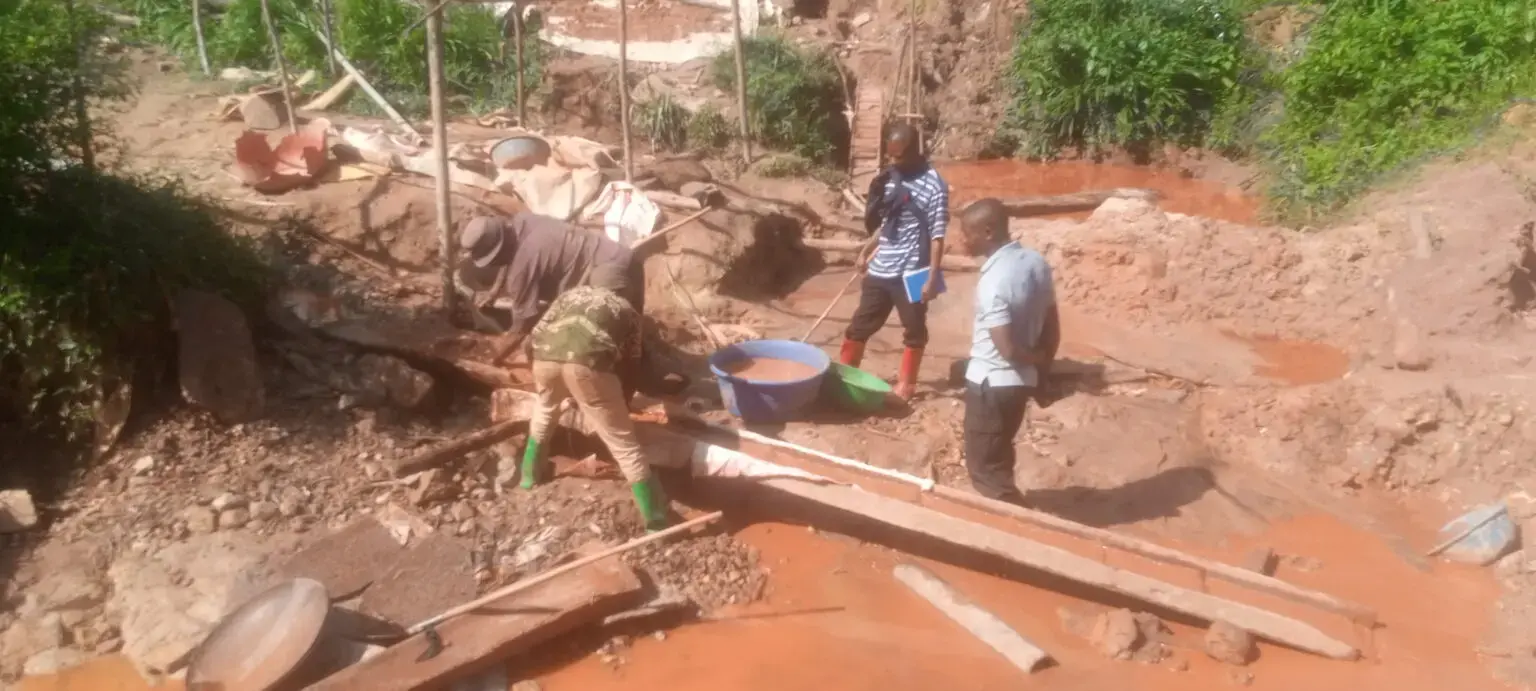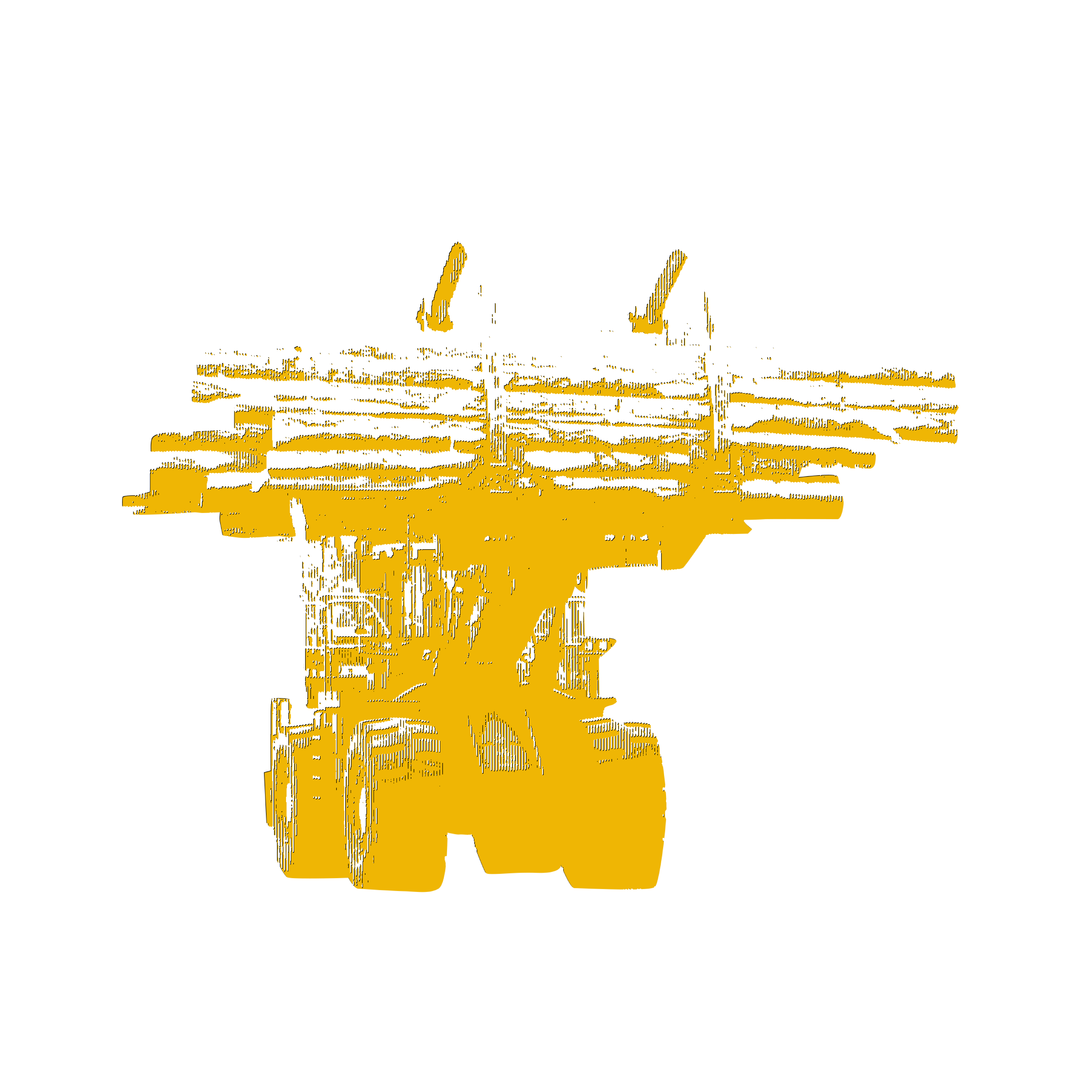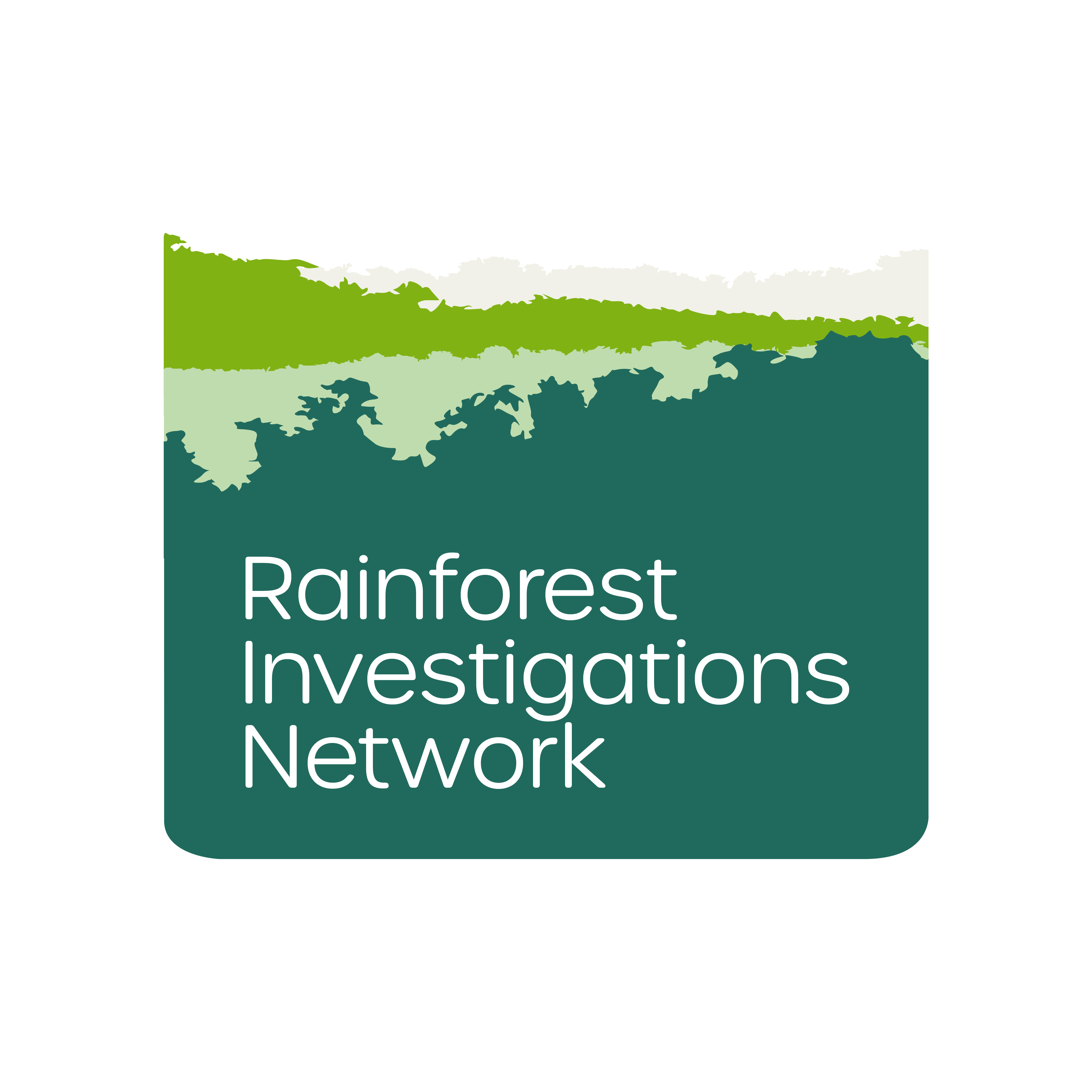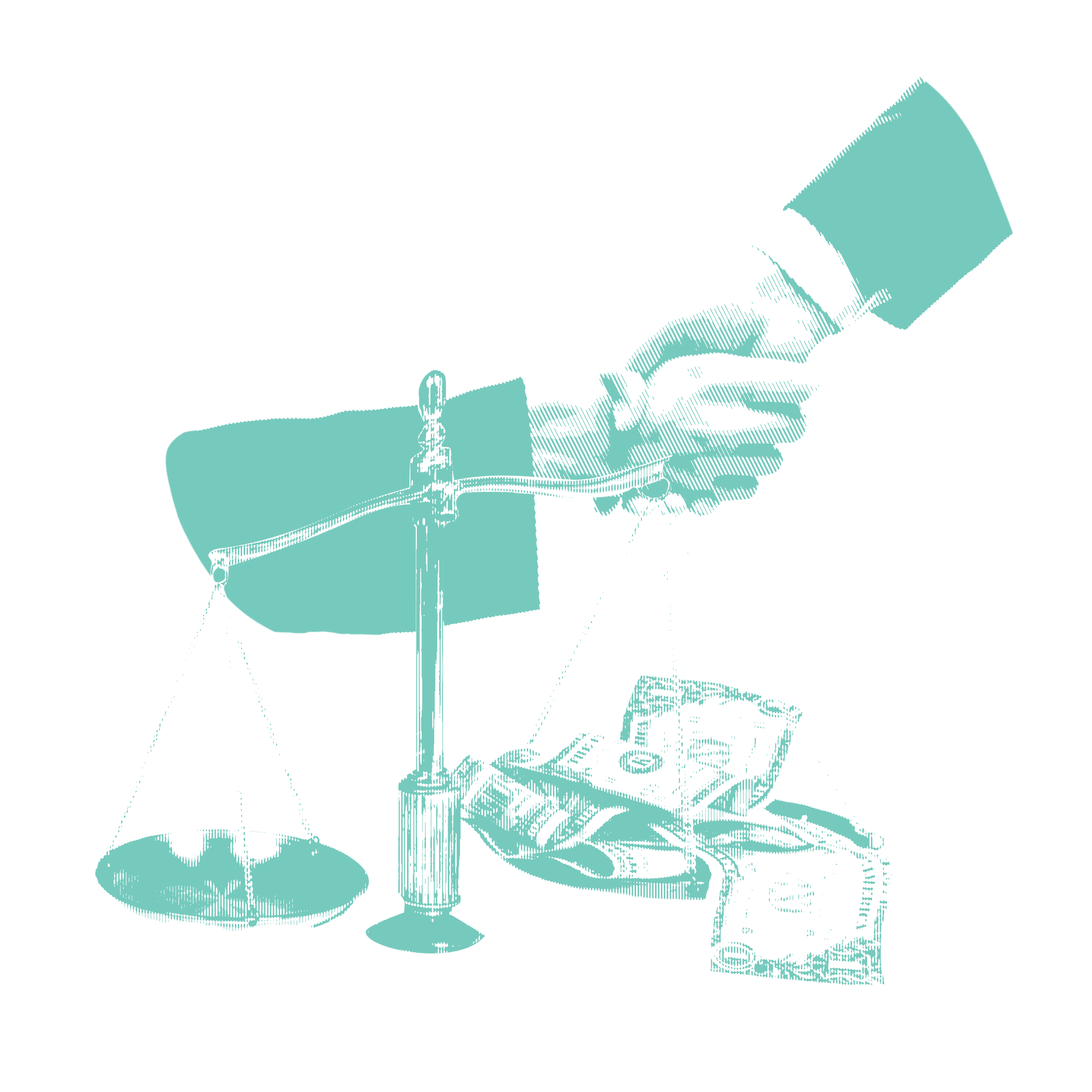
This article is also available in French. To read it, click here.
From the Maiko National Park to the Kauzi-Biega National Park, passing through those of Garamba and Virunga as well as the Okapi Wildlife Reserve, in the Democratic Republic of Congo (DRC), protected areas are today a hub for illegal trafficking of natural resources. From the exploitation of minerals to the trafficking of wild animals, everything is practiced there, making these classified forests a "pantry," a hiding place, but also and above all a corridor, for illegal and risk-free trafficking. We focus specifically on the trafficking of coltan, gold and cassiterite in this third part of a series of investigative reports that aim to uncover the supply chain of illegal minerals from Kivu with interference from local and foreign militias around protected areas.
"The geographical location of the Virunga National Park (PNVi) is one of the harmful factors that make the Congo suffer more from foreign aggression. With the PNVi, we share around 300 km with Rwanda and Uganda. All the way there, in a self-respecting country, we should have very strong military units," says Kule Thatha, who is conducting his doctoral research on the security of the PNVi. Created in 1925, the Virunga National Park is the oldest park in Africa, then called Albert Park. Sharing the rich biodiversity abounding in the Virunga ranges, two neighboring countries have managed to create a park each on its own: the Volcano for Rwanda and the Queen Elisabeth National Park for Uganda. But this ecological corridor that runs along the border between these countries and the DR Congo not only facilitates the movement of animals, but it also serves the many mafiosos, civilians, armed groups and loyalist forces, who also traffic minerals there, says Thatha, an expert on security issues around the PNVi.

Whistleblowers and others in possession of sensitive information of public concern can now securely and confidentially share tips, documents, and data with the Pulitzer Center’s Rainforest Investigations Network (RIN), its editors, and journalists.
A Mafia Business Around Virunga
Today, the staggering Virunga National Park is an important home for armed groups, and mainly the Democratic Forces for the Liberation of Rwanda (FDLR), whose Rwandan Hutu fighters found refuge in Congo after the fall of their regime in Kigali, as well as elements of the Allied Democratic Forces (ADF), a group of Ugandan origin.
For Nissé Mughendi, professor of geopolitics at the Catholic University of Graben in Butembo (North Kivu), if at the beginning the ADF and FDLR had the vision of regaining power in their countries of origin, for several decades, they no longer intend to return since they have taken a liking to the resources of the Virunga. They found enough to survive and to enrich themselves, notes this specialist in security issues.
The FDLR controls about 10% of Virunga National Park in Rutshuru territory and survives, thanks to the Makala business that represents $40 million to $50 million in U.S. dollars annually, reveals a report by Enough Project, which notes that 92% of charcoal used in the province of North Kivu comes from this park.
“The ADF discovered mining squares in the northern part of Virunga National Park, along the Semuliki River. They exploit and that helps them to resist and to do business,” argues Professor Nissé Mughendi, who documents the dynamics of the conflicts in eastern Congo.
On the outskirts, as well as within this park, mining squares are maintained, where gold or coltan is extracted.
Yet park managers don't see it that way. Our interview request was forwarded, but no response.
Strainer borders!
The IPIS map shows that all the minerals extracted in mining sites located in remote areas are transported to the border urban centers: Bukavu, Goma, Kalehe, Butembo, and Beni.
In a number of cases, fraudulent export takes the same route as legal export; obviously, when it comes to the business of someone who has influence such as a merchant associated with political, administrative or military actors. If not all three at once. It is enough to underestimate the quality or the quantity to be declared. No control will be made because the product belongs to someone powerful. Indeed, holding a parcel of power in the DRC is like a passport to allow yourself anything.
For ordinary citizens, this is where exporting takes another form. There are three fraudulent voices that are regularly used to export minerals. First, the so-called “kuchora” system. The owners collaborate with small traders who use the porous entrances between Goma and Gisenyi in the “Makoro” to smuggle the minerals through. Second, traders use people with disabilities who trade across borders to get their goods because they are less checked at the border. Once across the country, they know where to drop off the packages.
And finally, there are traders who collaborate with FARDC military officers to evade export taxes. These soldiers appropriate the minerals and make them cross the customs under their influence. In return, the merchants give them wine.
This porosity of the border marked by the presence of the armed forces facilitates a double traffic, arms and minerals because the former allow access to the latter.
From Rwanda or from other Congolese cities, munitions also cross by canoe like ores and are recovered in cities like Vitsumbi and Kyavinyonge by their owners. From there, if the destination has to pass through a city like Butembo, these weapons are loaded into trucks that transport food products with clear instructions to accomplice agents at the control barriers. These kinds of trucks are not searched.
“Do you know that an AK 47 weapon costs 50 dollars here in the town of Butembo? A box of 1000 cartridges at 250 dollars. And it's sold here in the town of Butembo. At this price, a few weapons are enough to control a village, a mining square than to be encumbered with all the Congolese bureaucracy and the related financial costs," said one fighter, anonymously by interlocutor. In September 2017 during the trials against the captured ADF, Schadrack Kakule declared to the late prosecutor General Munkute, "... In the DRC, it is easier to obtain an AK 47 than a 12 gauge for hunting."
Rwanda is the preferred route for the illicit trade in these minerals, primarily coltan. Unlike the Congolese government, it does not tax mineral imports and the country's legislation allows imported goods to be recognized as Rwandan goods if they undergo further processing in the country with at least 30% added value.
In 2018 and 2019, average prices were USD 23.85/kg in DRC and USD 36/kg in Rwanda. Depending on the percentage of tantalum concentrate in coltan, the ore was trading in the DRC between 35 and 52.5 USD/kg in 2021, while in Rwanda the price was between 52 and 65 USD/lb (0.5 kg) in the same year. According to the Ecofin agency, 90% of the coltan exported by Rwanda comes from fraudulent exports from the Congo.
These blood ores build cities abroad. "Kigali is not built with the wealth of Rwanda, it is the resources of the DRC," maintains Mr. Célestin Bamwisho Bwira Bivuya, former executive of the DDRR service. He is supported by Professor Nissé Mughendi by affirming that this exploitation of minerals by foreign armed groups does not only benefit these armed groups: “The FDLR exploit the minerals, to export them, they sell them to Rwandan officials or relatives of the regime in Rwanda who, themselves, launder them and make them part of the economy of Rwanda. The same thing for what the ADF can exploit in the Beni region, be it gold, cocoa or wood, it always passes through Uganda. And it is Uganda that benefits in terms of the country's overall economy. This may justify the fact that these States are not really involved in finding a solution."
"For five years, Rwanda came on the grounds that they were pursuing the FDLR, but everyone knows that instead of pursuing the FDLR, Rwanda came out as the leading producer of coltan and other minerals. The war in the East is economic," tweeted His Excellency Julien Paluku Kahongya, Congolese Minister of Industry and former Governor of North Kivu from 2007 to 2018.
An intrusion regularly denounced in recent times by President Felix Tshisekedi with his partners from the top of the United Nations platform, from the African Union to regional organizations such as SADC, ECAC, CIRGL and the East African Community, but none of these Partner States neither condemns nor imposes firm sanctions against Rwanda or Uganda.
The reason is simple for Researcher Kule Thata: The DRC has no weight on the international scene given the weaknesses of its army. For the Archbishop of Bukavu, the reason is elsewhere. The great powers do not need strong power in the Congo. The great powers need a weak Congo to afford everything, as Mzee Laurent Désiré Kabila said. There is more complicity from some and naivety, lightness on the Congolese side. “That is why armed groups are only the instruments of politicians and multinational groups. They are used to avoid investing legally in the Congo,” maintains Mgr Sébastien, president of the Natural Resources Commission within the National Episcopal Conference of Congo, CRN-CENCO.
Indeed, on the international and regional level, the DRC and its neighboring countries have already signed agreements aimed at regulating the mining sector, but given what is still happening in eastern DRC, these mechanisms have so far failed.
There are several certification procedures, carried out by different institutions: the International Tin Research (ITRI) for tin, the Bundesanstalt für Goewissenschaften un Rohstoffe (BGC or German Geological Service), the International Conference on the Region of Great Lakes (ICGLR) for the resources of the whole region in addition to the national certificates for the DRC. Thus, the Organization for Economic Cooperation and Development (OECD) has proposed to coordinate these procedures and bring them into line with the national regulations of the client powers. Notably the Dodd-Frank Act in the United States and a possible future comparable initiative of the European Union.
Even the International Tin Research (ITRI) is praised for its success in the certification of Rwandan minerals, but a group of experts from the United Nations shows in a report that Rwanda and ITRI certify illegally imported minerals of the DRC.
The 1969 Vienna Convention requires all treaties to be performed in good faith (Pacta sunt servanda). It is therefore an obligation for each State to apply the provisions resulting from an international agreement or treaty, explains Master Mulumbi Jackson, environmental lawyer resident in Goma.
However, this author of the book Trees and forests of the Democratic Republic of Congo: pearls of the world to be protected by peace suggests that: Our prosecutors and military prosecutors, insofar as they could remember their role as ensure the respect due to the law, should arrest for rebellion (cf. art. 133 and 134 of the penal code book II) any refractory to international treaties binding the Democratic Republic of Congo."
To think that the DRC will ask Rwanda and Uganda to indicate the source of their exports is a much more dangerous undertaking than working to reduce the porosity of the Congolese borders. And that the DRC can do without causing a diplomatic incident. These countries cannot export products that have not crossed. If they can get through, it's partly our fault. The solution must be found in the DRC, suggests Professor Nissé Mughendi. If for Professor Nissé, the solution is thus military in addition to a strong State. The researcher Kule Thata thinks that it is rather necessary to erect a wall on this border by leaving ecological corridors that can be controlled.








